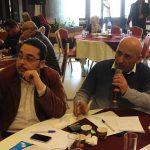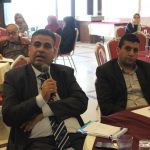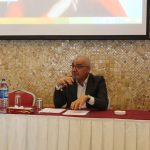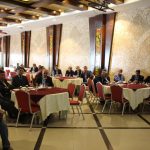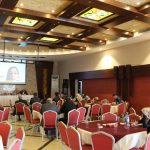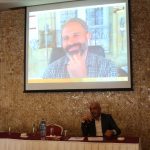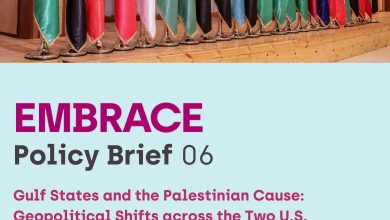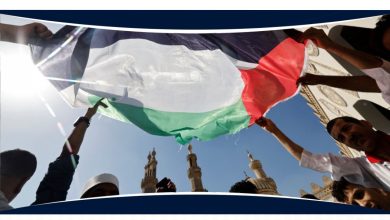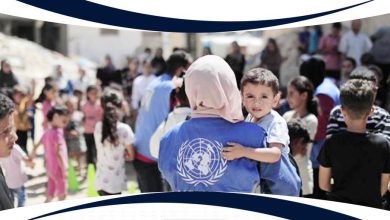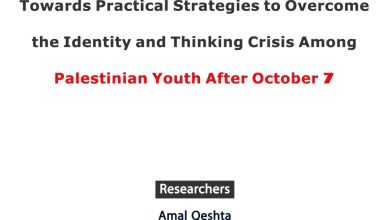Reassessing the International Geopolitical Landscape: Advancing Relations with Major Powers (EU, US, BRICS)
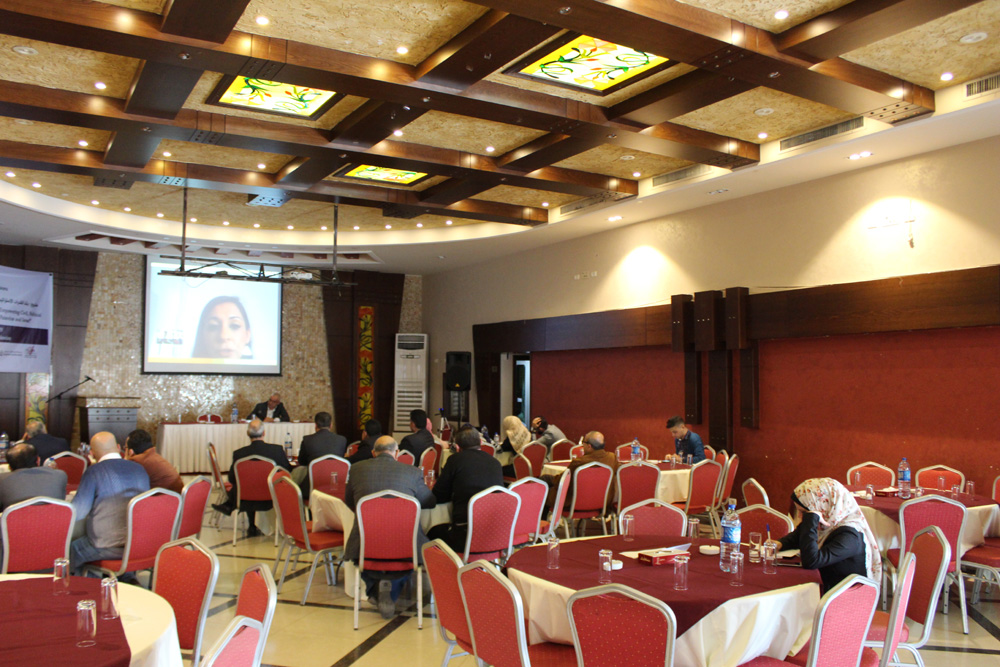
Date: Sunday, April 7, 2019, 1:00 p.m.
Location: Light-House Hotel, Gaza City, Palestine.
Background:
“Building Strategic Capacity: Empowering Civil, Political and Emerging Constituencies in Palestine and Israel” is an EU Peacebuilding Initiative-funded project that develops the ongoing work of the Palestine Strategy Group (PSG), the Palestinian Citizens of Israel Group (PCIG) and the Israeli Strategic Forum (ISF). This roundtable discussion was part of the PSG dimension of the project. Since being founded in 2008, the PSG has produced a considerable number of studies and strategic reports on the Palestinian issue. In cooperation with Pal-Think for Strategic Studies, the Palestinian Center for Israeli Studies (MADAR) and Oxford Research Group, the PSG will produce 12 research papers between 2017 and 2020 which deal with multiple themes and perspectives that then culminates in the publication of the Strategic Policy Manual “Palestine 2020”. This policy report will be presented at a major conference in Ramallah in 2020 and incorporate all the findings of the 12 PSG research papers as well as conclusions of the PCIG.
Workshop’s Attendees:
The roundtable was conducted in the Gaza strip. Attendees included Mr. Omar Shaban, director of Pal-Think for Strategic Studies as a moderator, Dr. Toufic Haddad, Ph.D., Haddad is a Palestinian-American writer based in Jerusalem. He is the co-author and editor of Between the Lines: Readings in Israel, the Palestinians, and the U.S. ‘War on Terror’ and the book “Towards a New Internationalism”: Readings in Globalization, the Global Justice Movement and Palestinian Liberation. Participants are 40 members including journalists, professors, activists, intellectuals, writers, political analysts, and college students. Besides, 15 of the attendees were less than 30 years old, and 25 of them were above 30 years old. Only 10 female participants attended whilst 30 were male.
Moderator Contribution:
Mr. Shaban noted that this roundtable is part of Pal-Think’s continued project with ORG and the PSG within the EU Peacebuilding initiative “Building Strategic Capacity: Empowering Civil, Political and Emerging Constituencies in Palestine and Israel.” Last year, the project tackled issues related to Palestine internally and on the Israeli agenda and then covered Palestine in the region, and now presenting policy papers related to Palestine on the international agenda. Ultimately, all the policy papers written will be presented at the conference in 2020. The policy paper of this session is “Reassessing the International Geopolitical Landscape: Advancing Relations with Major Powers (EU, US, BRICS)” by Dr. Toufic Haddad.
Dr. Toufic Haddad Contribution:
Dr. Haddad discussed the global opportunities available to the Palestinians on the strategic, economic and political levels. Also, the relations between the Palestinian movement and superpowers like the U.S, EU, and BRICS countries. Besides, the researcher provided some ideas that should be taken into consideration when preparing such studies, most importantly, to have a deep understanding of the complexities of the international political and economic systems, to find ways for developing the Palestinian policies accordingly. This study is based on an understanding of the bilateral relations and the role of civil society and how that affects the policy-making. For these policy papers to be useful, they should determine smart objectives and policies at all levels, not only at the state level. According to Dr. Haddad, understanding the relationship of the Palestinian movement with the superpowers is because of the importance of the Arab region in the international politics, the role of these superpowers in the emergence of Israel, World War II, and the Holocaust. Furthermore, Dr. Haddad stressed that we have to form an objective understanding of the current international politics and come up with ways to achieve our objectives, taking into account the various political systems around the world and the approaches by which international organizations function.
Since 1967, the U.S has been the peace mediator for the Arab-Israeli conflict. However, the U.S foreign policies regarding the Arab-Israeli conflict do not come from the Jewish lobby, but to serve specific economic interests. When it comes to Russia, it has been an ineffective player in the region, specifically in the Palestinian issue and it is occupied with regional issues (like in Syria), all to protect its national security. The paper focuses on the role of the BRICS countries, which have a different experience and history with the Palestinian cause including being Pro-PLO, providing financial, military and political support and also support in the United Nations. Nevertheless, the current role of these counties does not go beyond moral support, and they cannot challenge the US administration in the region. After the Oslo Accords between the Israeli government and the PLO, some countries began to reconsider the idea of developing ties with Israel. For example; India became a staunch ally of Israel, and China built good relations to exchange experience on Tech development with Israel. China today manages the Haifa port and works on the development of Ashkelon’s port. While South Africa keeps more supporter of Palestine, its borders do not exceed regional boundaries, and that prevents it from having a major international role.
The researcher concludes that the region is subjected to full American dominance; the US is the one that runs the show in the Region and Palestine in particular. Especially that the current U.S administration is biased more than any other past administrations to Israel, providing Israel with sufficient support at all levels with the Palestinian leadership in Gaza and the West Bank being weak, marginalized, and paralyzed.
To sum up, it is vital for the Palestinians to focus on a lower level than the state-level since countries make it clear that they are serving their interests. Palestinians must target civil society at all levels and adopt a bottom-up approach, to influence the people of those countries who can put pressure on their governments and advocate for the Palestinian cause. Furthermore, it is also crucial for the Palestinians to target the different social movements in the West.
Attendees’ Comments & Questions:
- It is essential for the policy paper to propose methods for regaining the Palestinian cause image in areas like India and China.
- It is hoped that the paper shed lights on the changes regarding the Palestinian issue after the right-wing parties dominate politics in many countries.
- The Palestinian leadership does not have a presence in the BRICS areas. The Palestinian case does not have much support anymore in Europe. It is vital for the Palestinian movement to regain its influence in those areas.
- Palestinians’ ability to network with the West was a substantial advantage back in the 1970s, something that is missed today. Therefore, what Palestinians can do to regain that advantage? It is crucial for this policy paper to suggest ideas that can be employed through civil society.
- It is necessary to find a global movement focused on the Asian continent and win their support.
- The Palestinian leadership does not represent the people. It is paralyzed. We need new leadership to regain faith and support in/for the Palestinian cause worldwide.
- What should be made to change the priorities of the European societies towards the Palestinian cause and how can the BRICS be used to serve the Palestinian cause?
- Why the European countries can not abandon the U.S role, and why fewer countries are supporting the Palestinian cause and did the intra-Palestinian divide participated in that?


